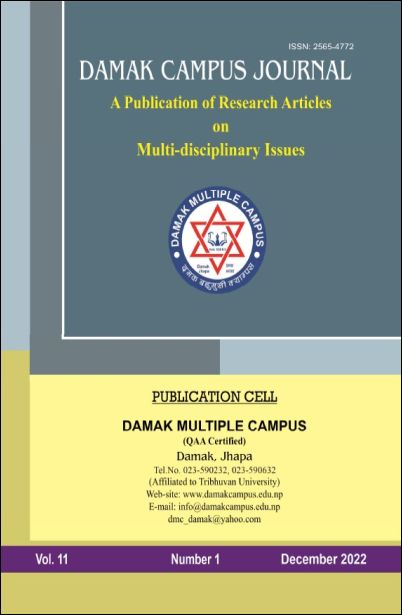Awareness on Pesticide Exposure and Safety Practices at Himalaya Tea Estate Damak-4
DOI:
https://doi.org/10.3126/dcj.v11i1.63486Keywords:
Pesticide safety, Pesticide exposure, pesticides awareness, PPEAbstract
Pest control is one of the major problems in tea plantation and may exert harmful impact to the environment and health if unhealthy practice prevails. Himalaya Tea estate situated in Damak cover a huge area of about 500 hectors of land where agricultural activity is continuously performed over years. This study was done to examine awareness on safety practices and use of Personal Protection Equipment (PPE) while handling pesticides by the workers in the Himalaya tea estate. For this a structured closed ended questionnaire survey was conducted among 30 respondents who were randomly sampled and an unstructured open ended key informant survey was conducted among the parties concerned with the subject from administrative level. This was supported by field observation.
From the study it was found that among many Integrated Pest Management (IPM) techniques of pest control chemical method was being practiced in the study area. Similarly during the survey safety and awareness it was revealed that despite of the availability PPE, none were found using a full set of it. Similarly majority of field workers i.e. nearly 99% were found unaware about IPM, Good Agricultural Practice (GAP), toxicity, banned pesticides, classes of pesticides etc. and had never taken any training related to the subject. During key informant survey it was revealed that the workers of administrative level had taken a few training programs. This highlights the gap in communication between them and suggests the need of awareness raising training programs regarding IPM and related topics among all level of workers.




